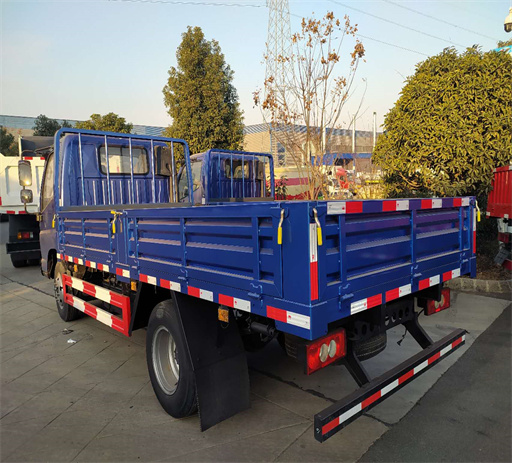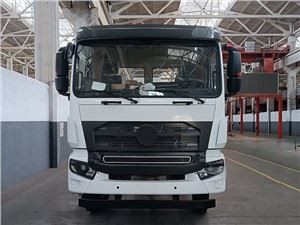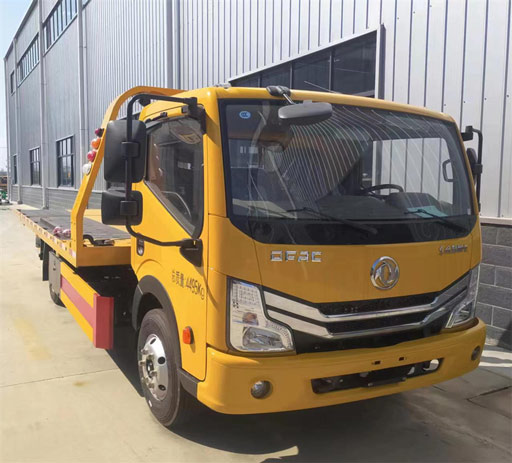Electric Tractor Trailers: The Future of Sustainable Transportation
As industries move towards sustainability and electrification, electric tractor trailers represent a significant advancement in the logistics and transportation sectors. These vehicles not only help reduce carbon emissions but also offer numerous benefits that enhance operational efficiency. In this article, we will explore everything you need to know about electric tractor trailers, from their technology and benefits to practical examples, current offerings, and answers to common questions.

The Rise of Electric Tractor Trailers
The transportation industry is undergoing a transformation as concerns about climate change, fuel prices, and air quality intensify. Electric tractor trailers are becoming increasingly viable alternatives to traditional diesel-powered trucks, driven by advancements in battery technology and an understanding of the economic and environmental advantages they provide.

Understanding Electric Tractor Trailers
Electric tractor trailers are heavy-duty trucks powered primarily by electric motors and battery systems rather than internal combustion engines. This shift toward electrification is a crucial step in reducing the carbon footprint of the transportation sector.
What Makes Electric Tractor Trailers Different?
- Power Source: Electric tractor trailers utilize electricity stored in batteries rather than diesel fuel.
- Efficiency: Electric motors are generally more efficient than internal combustion engines, translating to lower energy costs.
- Low Emissions: These vehicles produce zero tailpipe emissions, which contributes to cleaner air.
- Maintenance: Electric motors have fewer moving parts, often leading to reduced maintenance requirements.
Benefits of Electric Tractor Trailers
Electric tractor trailers offer a multitude of advantages, making them an appealing choice for fleets looking to modernize their operations.
Environmental Impact
One of the most pressing issues in today’s transportation landscape is the impact of carbon emissions. Electric tractor trailers help mitigate this issue by:
- Reducing Greenhouse Gas Emissions: By using electric energy, these vehicles eliminate greenhouse gas emissions at the point of use.
- Improving Air Quality: With no exhaust emissions, electric trailers contribute to cleaner air in urban and rural settings.
Cost Efficiency
Though the upfront cost of electric tractor trailers may be higher than traditional trucks, their total cost of ownership can be lower in the long run due to:
- Lower Fuel Costs: Electricity is generally cheaper than diesel fuel, which significantly reduces the cost per mile.
- Reduced Maintenance Costs: Fewer moving parts and simpler mechanics mean lower maintenance expenses.
Performance Advantages
Electric tractor trailers are designed to provide superior performance, including:
- Instant Torque: Electric motors deliver full torque instantly, providing strong acceleration.
- Improved Reliability: Electric vehicles tend to have higher reliability due to their simpler powertrains.
Current Market Players
Several companies are leading the charge in developing and manufacturing electric tractor trailers. Here are a few key players to watch:
Freightliner
Freightliner’s eCascadia is a full-electric version of the popular Cascadia model. It has a range of up to 250 miles per charge and is designed for local and regional operations.
Rivian
Rivian, known for its electric pickup trucks, has announced plans to produce electric delivery vans and trucks, emphasizing sustainability and electric performance.
Tesla
Tesla’s Semi aims to revolutionize long-haul trucking with its promise of a range of up to 500 miles, coupled with rapid charging technology.
Technology Behind Electric Tractor Trailers
The technology that powers electric tractor trailers is rapidly evolving, making them more efficient and capable than ever before. In this section, we will discuss the key components.
Battery Technology
Batteries play a crucial role in the performance of electric tractor trailers. They are typically comprised of lithium-ion cells, which have made significant advancements in energy density and charging speeds, translating to longer ranges and quicker charging times.
Types of Batteries Used
| Battery Type | Advantages |
|---|---|
| Lithium-ion | High energy density, lightweight, fast charging |
| Solid-state | Higher capacity, improved safety, longer lifespan (emerging technology) |
Charging Infrastructure
For electric tractor trailers to become mainstream, adequate charging infrastructure is essential. There are three primary types of charging setups:
- Level 1 Charging: Standard wall outlets, suitable for overnight charging.
- Level 2 Charging: Faster charging stations often found in commercial settings.
- DC Fast Charging: Provides rapid charging solutions ideal for long-haul operations.

Real-World Applications and Case Studies
Understanding how electric tractor trailers perform in real-world situations can help businesses consider them for their fleets. Here are some practical examples.
Food and Beverage Distribution
A major beverage distributor implemented electric tractor trailers for local deliveries. The result was a 40% reduction in operating costs and significant cuts in their carbon footprint.
Retail Supply Chains
Retail giants are investing in electric tractor trailers for short-haul routes to deliver goods to stores. Companies report increased visibility, lower emissions, and improved delivery times.
Challenges Facing Electric Tractor Trailers
Despite the numerous advantages of electric tractor trailers, some challenges remain.
Range Anxiety
Many fleet operators worry about the range of electric vehicles when compared to diesel trucks. However, advancements in battery technology are helping to address these concerns, increasing the miles per charge significantly.
Initial Investment Costs
The upfront costs for electric tractor trailers can be higher than traditional vehicles, which may deter some companies from making the switch. However, long-term savings in fuel and maintenance can offset these costs.
Tips for Transitioning to Electric Tractor Trailers
Companies considering the move to electric tractor trailers can take several practical steps to ensure a smooth transition.
Conduct a Feasibility Study
Assess your operational needs, including route lengths and charging infrastructure availability.
Engage with Manufacturers
Establish partnerships with manufacturers to understand the best options available and foresee any potential issues during onboarding.
Invest in Charging Infrastructure
Ensure that adequate charging solutions are available to support electric vehicle use in your fleet.
FAQ Section
What are electric tractor trailers?
Electric tractor trailers are heavy-duty trucks powered by electric motors and batteries, eliminating the need for diesel fuel and reducing carbon emissions.
How far can electric tractor trailers travel on a single charge?
The range varies by model, typically ranging from 250 miles to over 500 miles per charge, depending on battery capacity and vehicle load.
What are the major benefits of using electric tractor trailers?
Benefits include lower fuel costs, reduced maintenance needs, zero tailpipe emissions, and improved environmental sustainability.
Are there any challenges in transitioning to electric tractor trailers?
Challenges can include range anxiety, high initial investment costs, and the need for charging infrastructure, although these issues are being addressed over time.
What companies are producing electric tractor trailers?
Key players include Freightliner, Rivian, and Tesla, each offering various models tailored for different operational needs.
How does charging electric tractor trailers work?
Charging typically involves standard wall outlets (Level 1), faster commercial charging stations (Level 2), or rapid DC fast charging stations designed for quicker turnaround times.
